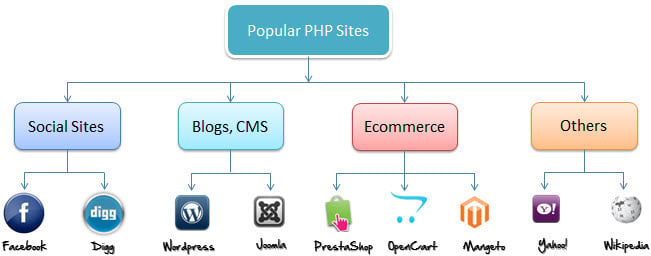
PHP stands for Hypertext Preprocessor and is a preferred server scripting language for web development. This language was founded in 1995 and has been involving throughout these years with a wide range of popular PHP web frameworks. Most PHP frameworks are free and offer strong security features.

PHP has many outstanding advantages like modules and libraries which insure dynamic software development. For these reasons, most of the content management systems and websites are written using PHP.
The pros of PHP:
- Open-source
- Very popular for web applications
- Completely compatible cross-platform
- Highly scalable
- Huge community of programmer support
- Easily embedded into HTML
The cons of PHP:
- Learners must have a basic knowledge of HTML
- Runs a bit slowly than other programming languages
- Not adjusted for desktop applications
- The ease of customization makes it harder to detect the errors and more error-prone
Alternatives to PHP
JavaScript, Python, Java, HTML5, and Node.js are the most popular alternatives and competitors to PHP.





PHP “Hello world” Program Example
The program shown below is a basic PHP application that outputs the words “Hello World!” When viewed in a web browser.
<?php echo "Hello world"; ?>
Output:
Hello world
0 Comments